Avventura, L’ (1960)
“How can it take so little time to change, to forget?”
|
Synopsis: |
|
Genres, Themes, Actors, and Directors:
Response to Peary’s Review: He points out that the “film is very slow-paced, has no real storyline, [and] uses dull dialogue to express the dullness of the uncommunicative characters.” He notes that while he personally finds “the film fascinating,” he now knows “better than to recommend it to the casual moviegoer.” Finally, Peary highlights the “mesmerizing photography by Aldo Scavarda.” I agree that it’s easy to see how this “challenging” film would divide audiences. It’s gorgeous and provocative, but requires patience and some intentional analysis to appreciate the points its director seems to be making. According to Geoffrey Nowell-Smith’s essay for Criterion:
However, Nowell-Smith points out a crucial difference between Antonioni and Hitchcock’s approach: Antonioni did not provide easily discernible reasons or motivations for anything that happens (or doesn’t happen) to his characters; they simply exist and (inter)act. Antonioni followed up this film with three others also starring Vitti: La Notte (1961), L’Eclisse (1962), and Red Desert (1964); I’ll be reviewing and comparing those soon. Notable Performances, Qualities, and Moments: Must See? Categories
(Listed in 1001 Movies You Must See Before You Die) Links: |
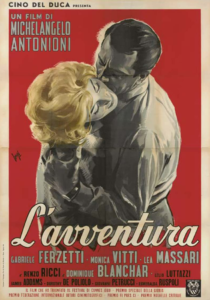
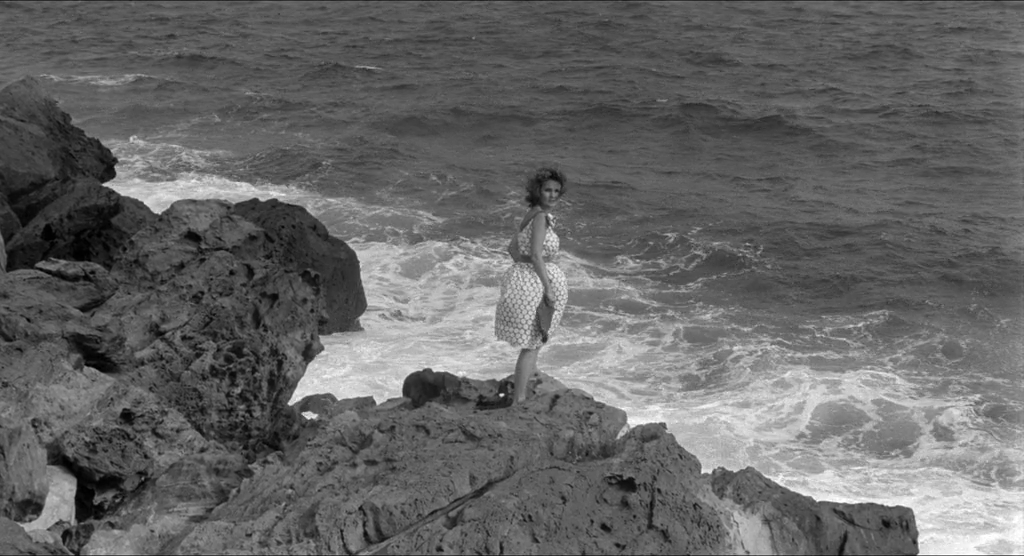
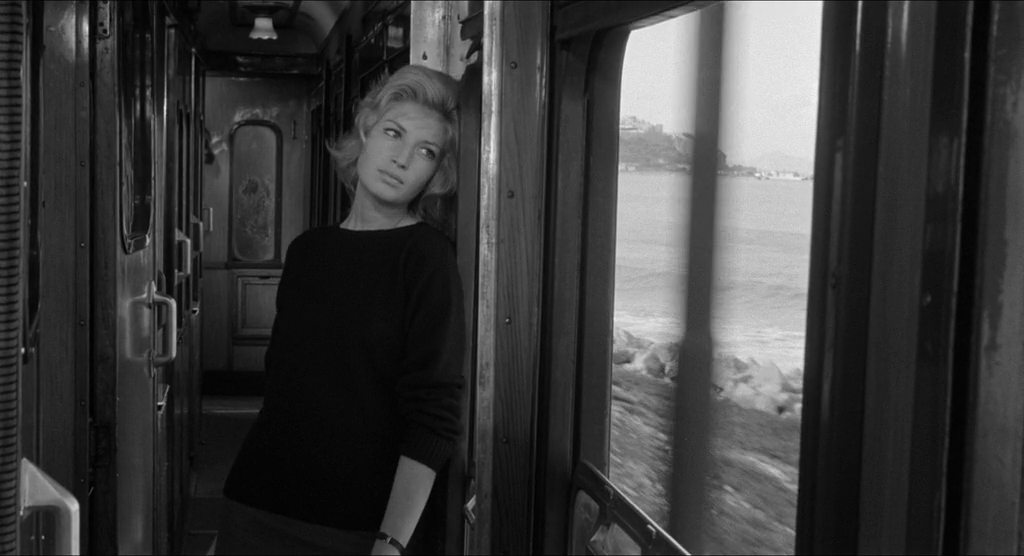
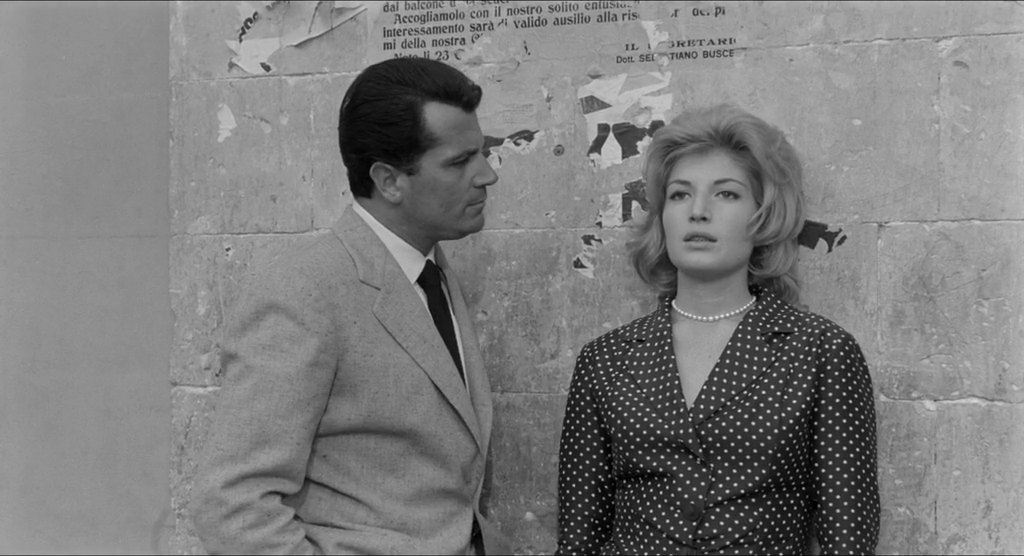
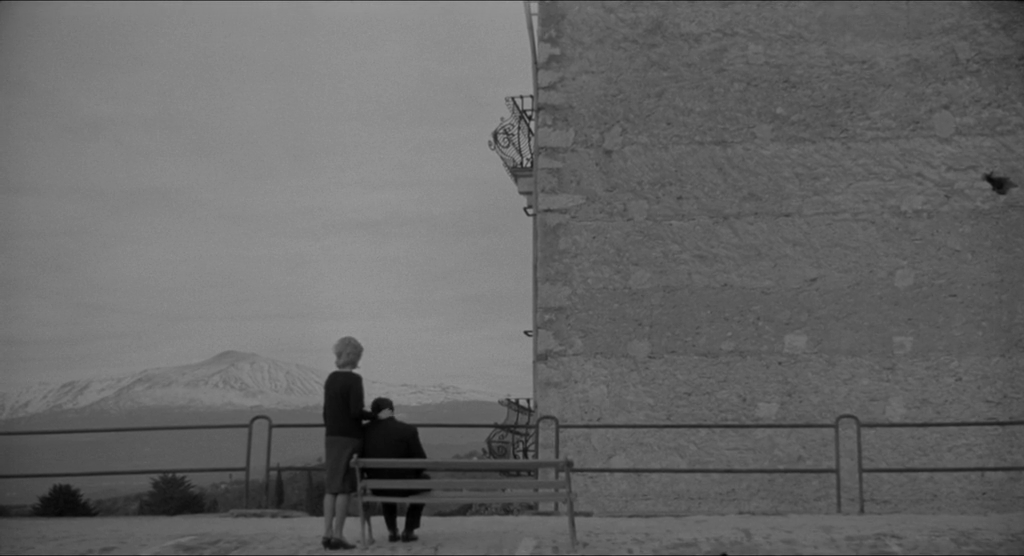
One thought on “Avventura, L’ (1960)”
Rewatch. A once-must, at least, for its solid place in Italian cinema history. (Those who take to the film will consider watching it again.)
It’s just my opinion but I would not place Antonioni among the most notable of directors. However, I do think he got lucky… twice… with this film, and then again later with ‘The Passenger’.
I’m not familiar-enough with his early work but, from what I’ve seen of his early films, they appear to share something with early Fellini films – in that they come off as being made in a more traditional manner.
With ‘Il Grido’ serving as something of a dry run for where his head was really at, Antonioni then broke through with ‘L’Avventura’, creating a film of real weight, beauty and significance.
The way I see it, Antonioni then – with his next three feature films – more or less tried to re-create making the same exact film (even though the thin storylines differed) without really advancing in terms of having anything to ‘say’.
He would break out of that established (bad) habit with the more extreme experiments of ‘Blow-Up’ and (esp.) ‘Zabriskie Point’ before once again striking ‘gold’ with ‘The Passenger’.
So, he made two rather great movies (imo).
Personally, I don’t see any real flaws in ‘L’Avventura’ – although I would agree that it’s not a film for everybody, even though ffs should see it. Yes, there will be those who grow impatient with its rhythm or find it – among other such things, perhaps – “infuriatingly shallow” (I wouldn’t agree with that).
But I don’t find that the film requires inordinate patience. I do find it hypnotizing but in a way that still keeps me conscious of its intent (as I interpret its intent, that is – though it doesn’t seem to me to be all that complicated).
I especially appreciate the aspect of loneliness as presented in the film in variations, and esp. as set against the stark ‘solitude’ of the geography.
Oh – and, yeah, Ferzetti is certainly *nice* to look at. Vitti is stunning as well.